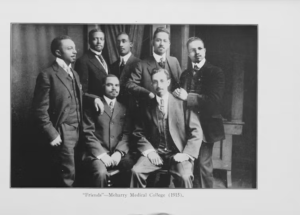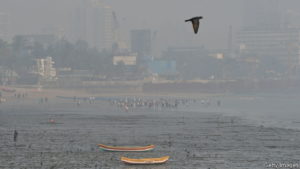Doors and locks smashed, power equipment stolen, no fuel, no food, water or electricity … welcome to what’s left of a UN base handed over to the Congolese police just weeks ago by peacekeepers in violence-wracked South Kivu province.
The first phase of what the Democratic Republic of Congo’s government said would be an “ordered, responsible and lasting” withdrawal” by MONUSCO forces was due to be completed by April 30.
According to the provincial authorities, peacekeepers have so far left four of the dozen bases in the province, including the post at Kamanyola, which today looks more like a slum than the outpost that Pakistani troops left barely two months ago.
“We have nothing to eat here,” says Bruno, one of the policemen deployed to the camp on the Ruzizi plain.
Watched by three colleagues, he is cooking a corn or manioc paste, known locally as foufou, in a pot over a fire on the ground.
Bruno says he begged the ingredients from the nearby Protestant church.
“If I don’t share it, my colleagues will die of hunger,” he adds.
The small group proceeds to wander through what was a UN base just two months ago.
They pass by the helicopter landing pad where corn now grows nearly two metres (six feet) high.
“I left my wife and children in Uvira (75 kilometres further south), they are suffering down there and we have been put in cardboard houses,” he rages, punching the outside wall of the prefabricated dormitories.
Inside, sitting on a mattress, a man smokes a cannabis joint.
He’s in civilian clothing but is a member of the police force’s “special intervention unit”.
The man admits that with fellow officers he stole mattresses during the February 28 handover ceremony at the base attended by senior Congolese ranks and top UN officials.
“If we hadn’t done that, today we would be sleeping on the wooden floor and there are nails.”
– Half police team deserted –
By the end of April more than half of the 115 policemen supposed to occupy the base have deserted, a visiting AFP reporter discovered.
Those who remain are far from happy with the conditions and no pay.
“A policeman who spends two days without eating when he is armed… it’s easy for him to attack peaceful citizens” to stock up, says Joe Wendo, an active member of a local civil society group.
He recalls that MONUSCO gave the police three Jeeps, but there is no fuel today.
“When there is a mission to do, how can they move around. That’s a problem,” says Wendo.
The Ruzizi plain, close to Rwanda and Burundi, has a reputation for robbery and kidnapping.
“The disengagement process by MONUSCO is progressing well,” declares Gaston Cissa wa Numbe, provincial minister in charge of liaison between government and the UN in South Kivu.
He tells AFP there have been “some challenges, mainly in supplying electricity and drinking water”.
But he assures, “a solution has now been found”.
– Rebels take over UN bases –
The 15,000 MONUSCO troops deployed in the vast central African country started to leave in February at the request of the Kinshasa government, which considers them ineffective.
A second phase of the UN departure plan concerns war-torn North Kivu where M23 rebels, backed by Rwanda army units, have seized swathes of territory.
At the start of April, several UN bases, set up to defend the provincial capital Goma, were taken over by the rebels after UN peacekeepers ignored orders and abandoned them.
The mission was set up in 1999 in a bid to halt the second DR Congo war, which saw local forces backed by Angola, Namibia and Zimbabwe fight rivals supported by Uganda and Rwanda.
Hundreds of thousands of deaths are blamed on the succession of conflicts since the 1990s.
At its peak 20,000 UN troops were in the country where more than 270 MONUSCO peacekeepers have been killed, according to UN figures.
Kinshasa has called for the UN withdrawal to be completed by the end of 2024, but the Security Council has not set a date.
The UN estimated at the end of 2023 that nearly seven million people were displaced in DR Congo, including 2.5 million in North Kivu alone.




